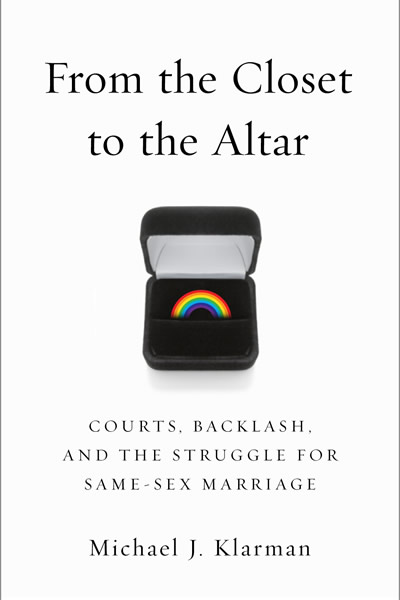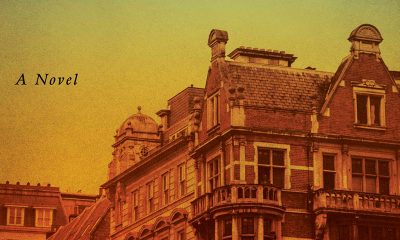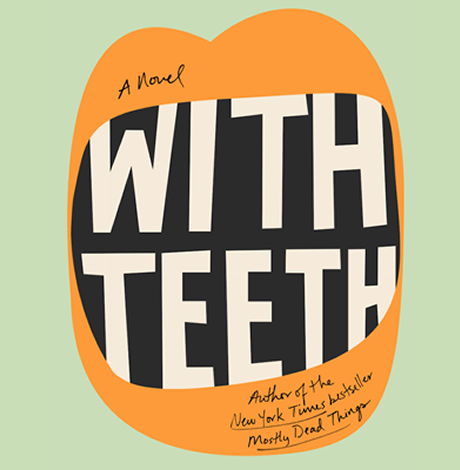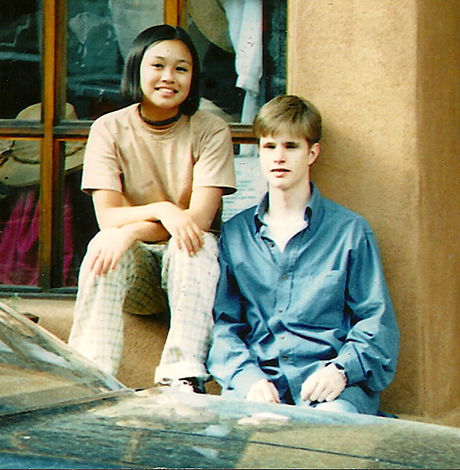Arts & Entertainment
Year in review: Books by the bounty
Several releases this year wrote eloquently of gay and trans themes
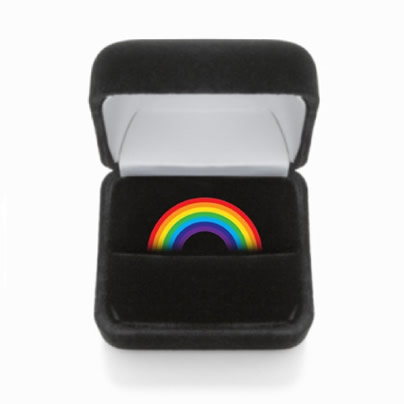
Drivel, dreck and what the heck?
That kind of sums up the books that were released this year. There were some good things, some downright awful things, and some things that, well, they weren’t bad but they weren’t the best books you’ve ever read, either.
And then there were the gems.
I read about 270 books this year, and (fortunate me!) it was hard to pick favorites, but nonetheless, here they are.
Adult fiction
For me, the world totally ceased to exist while I was reading “The Absolutist” by John Boyne. Set in the years after World War I, it’s the story of a former soldier who decides to return some letters to the sister of the friend who wrote them. Years ago, he knew the woman’s brother — had a crush on him, in fact — but the man is now dead, and when the sister asks what happened, the narrator tells her. What happens left me absolutely breathless.
If you plan on reading just one book this winter, this should be it. Really.
I have to admit: I’m not a major Eric Jerome Dickey reader. Some of his books leave me cold but “An Accidental Affair” chilled me with the action and double-crossing that happens to the book’s narrator, who catches his beloved wife sleeping with another man. What he has to do to get her out of trouble — and get himself out of danger — will make you turn the pages so fast, you’ll practically rip them.
What’s that word again for fiction based on fact? In the case of “October Mourning” by Lesleà Newman, the word is “powerful.”
Based on the Matthew Shepard murder, this book consists of a series of free-form poems from the POV of the things and creatures that witnessed his death: the fence, a doe that wandered by, the road, the truck. There are real quotes entwined amid the verses, which only serves to heighten the punch in the gut you’ll feel with this book.
I listened to it in audio. I bawled til I could barely breathe.
And if you’re thinking about starting a family, “The Paternity Test” by Michael Lowenthal may be one of the better books you’ll read about it.
Yes, this is fiction. It’s about a couple who have had a shaky relationship for years and then finally decide to settle down and have a baby through surrogacy. But it’s not that easy and I can’t tell you anything else. Just read it — seriously.
Adult non-fiction
Hands-down, the LGBT memoir I loved most this year was “Gypsy Boy” by Mikey Walsh. Walsh was born a Romany Gypsy and lived as a child in Europe in a series of camps and compounds. His father was determined to make Walsh the latest of a lineage of fierce fighters and, to that end, he beat his son every day, sometimes multiple times. But what the elder Walsh didn’t know was that his son was gay.
Walsh gives this book a laissez faire tone, but don’t let that fool you — this book packs a wallop and can’t be missed.
I’m a sucker for a good scandal and “Dropped Names” by Frank Langella had its share. Langella seemed to always be in the proverbial right place at the right time. That kind of luck put him in proximity of a lot of Hollywood stars and it started his career. This is a light-reading book with dozens of tiny chapters and big names. For any fan of movies, Broadway, or television, particularly from decades past, this is a great book.
As I started reading “From the Closet to the Altar” by Michael J. Klarman, I was afraid I was in for something dry. Not so much, as it turns out: this book isn’t just about gay marriage, it’s also about the history of gay rights and coming proudly out. Turns out that this book is a little like a good martini: a little dry, a little bitter and an interesting taste that leaves you wanting more.
And finally, I don’t think I’ll ever forget “A Queer and Pleasant Danger” by Kate Bornstein. It’s the story of a man who becomes a woman, a religion that almost derails that process and the aftermath of getting out of something very scary.
Bornstein is funny and self-depreciating, snarky and kind. You’ll find a lot of bravado in this book but read it — and read between the lines.
And there you have it: eight books on which you can use your gift certificate. Eight books to help you get through the winter. Books you just can’t miss.
Out & About
The Rare Book Fair is coming to D.C.
Over 35 antiquarian booksellers from across the country to attend
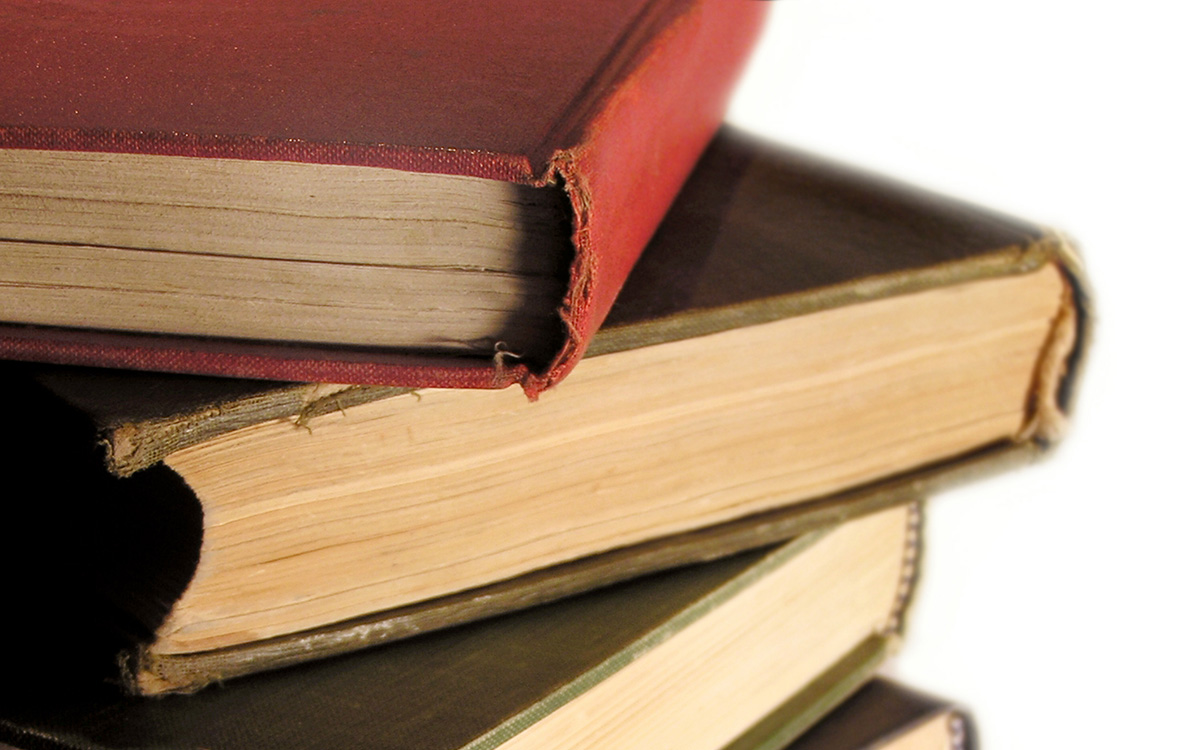
The Capital Rare Book Fair will bring more than 35 antiquarian booksellers from across the country to D.C. from Friday, May 3 to Sunday, May 5 at the historic University Club at 1135 16th St., N.W.
This year, the fair will take over two floors in the illustrious mansion on 16th Street and showcase thousands of beautiful, notable, and rare books, maps, and historic documents from around the globe. Exceptional examples that will be offered include leaf 27 of a 40-leaf xylographic Biblia pauperum, a picture Bible from 1465 for $85,000 from Bruce McKittrick Rare Books, among many other intriguing selections.
Tickets are $50 and more information is available on the event’s website.

Friday, April 19
Center Aging Friday Tea Time will be at 2 p.m. on Zoom. This is a social hour for older LGBTQ adults. Guests are encouraged to bring a beverage of choice. For more information, email [email protected].
Go Gay DC will host “Drag Pageant” at 8 p.m. at Freddie’s Beach Bar and Restaurant. Net proceeds from this event will benefit EQUALITY NoVa, the local nonprofit organization dedicated to advancing equality in Northern Virginia. Attendance is free and more details are available on Eventbrite.
Saturday, April 20
LGBTQ People of Color Support Group will be at 1 p.m. on Zoom. This peer support group is an outlet for LGBTQ People of Color to come together and talk about anything affecting them in a space that strives to be safe and judgment free. For more details, visit thedccenter.org/poc or facebook.com/centerpoc.
Go Gay DC will host “LGBTQ+ Brunch” at 11 a.m. at Freddie’s Beach Bar & Restaurant. This fun weekly event brings the DMV area LGBTQ community, including allies, together for delicious food and conversation. Attendance is free and more details are available on Eventbrite.
Sunday, April 21
Go Gay DC will host “LGBTQ+ Dinner” at 7 p.m. at Federico Ristorante Italiano. Attendance is free and more details are available on Eventbrite.
AfroCode DC will be at 4 p.m. at Decades DC. This event will be an experience of non-stop music, dancing, and good vibes and a crossover of genres and a fusion of cultures. Tickets cost $40 and can be purchased on Eventbrite.
Monday, April 22
Center Aging: Monday Coffee & Conversation will be at 10 a.m. on Zoom. This is a social hour for older LGBTQ adults. Guests are encouraged to bring a beverage of their choice. For more details, email [email protected].
Tuesday, April 23
Pride on the Patio Events will host “LGBTQ Social Mixer” at 5:30 p.m. at Showroom. Dress is casual, fancy, or comfortable. Guests are encouraged to bring their most authentic self to chat, laugh, and get a little crazy. Admission is free and more details are on Eventbrite.
Genderqueer DC will be at 7 p.m. on Zoom. This is a support group for people who identify outside of the gender binary. Whether you’re bigender, agender, genderfluid, or just know that you’re not 100% cis. For more details, visit genderqueerdc.org or Facebook.
Wednesday, April 24
Job Club will be at 6 p.m. on Zoom. This is a weekly job support program to help job entrants and seekers, including the long-term unemployed, improve self-confidence, motivation, resilience and productivity for effective job searches and networking — allowing participants to move away from being merely “applicants” toward being “candidates.” For more information, email [email protected] or visit [email protected].
Asexual and Aromantic Group will be at 7 p.m. on Zoom. This is a space where people who are questioning this aspect of their identity or those who identify as asexual and/or aromantic can come together, share stories and experiences, and discuss various topics. For more details, email [email protected].
Thursday, April 25
The DC Center’s Fresh Produce Program will be held all day at the DC Center for the LGBT Community. People will be informed on Wednesday at 5:00 pm if they are picked to receive a produce box. No proof of residency or income is required. For more information, email [email protected] or call 202-682-2245.
Virtual Yoga with Charles M. will be at 7 p.m. on Zoom. This is a free weekly class focusing on yoga, breath work, and meditation. For more details, visit the DC Center for the LGBT Community’s website.
Movies
After 25 years, a forgotten queer classic reemerges in 4K glory
Screwball rom-com ‘I Think I Do’ finds new appreciation

In 2024, with queer-themed entertainment available on demand via any number of streaming services, it’s sometimes easy to forget that such content was once very hard to find.
It wasn’t all that long ago, really. Even in the post-Stonewall ‘70s and ‘80s, movies or shows – especially those in the mainstream – that dared to feature queer characters, much less tell their stories, were branded from the outset as “controversial.” It has been a difficult, winding road to bring on-screen queer storytelling into the light of day – despite the outrage and protest from bigots that, depressingly, still continues to rear its ugly head against any effort to normalize queer existence in the wider culture.
There’s still a long way to go, of course, but it’s important to acknowledge how far we’ve come – and to recognize the efforts of those who have fought against the tide to pave the way. After all, progress doesn’t happen in a vacuum, and if not for the queer artists who have hustled to bring their projects to fruition over the years, we would still be getting queer-coded characters as comedy relief or tragic victims from an industry bent on protecting its bottom line by playing to the middle, instead of the (mostly) authentic queer-friendly narratives that grace our screens today.
The list of such queer storytellers includes names that have become familiar over the years, pioneers of the “Queer New Wave” of the ‘90s like Todd Haynes, Gus Van Sant, Gregg Araki, or Bruce LaBruce, whose work at various levels of the indie and “underground” queer cinema movement attracted enough attention – and, inevitably, notoriety – to make them known, at least by reputation, to most audiences within the community today.
But for every “Poison” or “The Living End” or “Hustler White,” there are dozens of other not-so-well-remembered queer films from the era; mostly screened at LGBTQ film festivals like LA’s Outfest or San Francisco’s Frameline, they might have experienced a flurry of interest and the occasional accolade, or even a brief commercial release on a handful of screens, before slipping away into fading memory. In the days before streaming, the options were limited for such titles; home video distribution was a costly proposition, especially when there was no guarantee of a built-in audience, so most of them disappeared into a kind of cinematic limbo – from which, thankfully, they are beginning to be rediscovered.
Consider, for instance, “I Think I Do,” the 1998 screwball romantic comedy by writer/director Brian Sloan that was screened last week – in a newly restored 4K print undertaken by Strand Releasing – in Brooklyn as the Closing Night Selection of NewFest’s “Queering the Canon” series. It’s a film that features the late trans actor and activist Alexis Arquette in a starring, pre-transition role, as well as now-mature gay heartthrob Tuc Watkins and out queer actor Guillermo Diaz in supporting turns, but for over two decades has been considered as little more than a footnote in the filmographies of these and the other performers in its ensemble cast. It deserves to be seen as much more than that, and thanks to a resurgence of interest in the queer cinema renaissance from younger film buffs in the community, it’s finally getting that chance.
Set among a circle of friends and classmates at Washington, D.C.’s George Washington University, it’s a comedic – yet heartfelt and nuanced – story of love left unrequited and unresolved between two roommates, openly gay Bob (Arquette) and seemingly straight Brendan (Christian Maelen), whose relationship in college comes to an ugly and humiliating end at a Valentine’s Day party before graduation. A few years later, the gang is reunited for the wedding of Carol (Luna Lauren Vélez) and Matt (Jamie Harrold), who have been a couple since the old days. Bob, now a TV writer engaged to a handsome soap opera star (Watkins), is the “maid” of honor, while old gal pals Beth (Maddie Corman) and Sarah (Marianne Hagan), show up to fill out the bridal party and pursue their own romantic interests. When another old friend, Eric (Diaz), shows up with Brendan unexpectedly in tow, it sparks a behind-the-scenes scenario for the events of the wedding, in which Bob is once again thrust into his old crush’s orbit and confronted with lingering feelings that might put his current romance into question – especially since the years between appear to have led Brendan to a new understanding about his own sexuality.
In many ways, it’s a film with the unmistakable stamp of its time and provenance, a low-budget affair shot at least partly under borderline “guerilla filmmaking” conditions and marked by a certain “collegiate” sensibility that results in more than a few instances of aggressively clever dialogue and a storytelling agenda that is perhaps a bit too heavily packed. Yet at the same time, these rough edges give it a raw, DIY quality that not only makes any perceived sloppiness forgivable, but provides a kind of “outsider” vibe that it wears like a badge of honor. Add to this a collection of likable performances – including Arquette, in a winning turn that gets us easily invested in the story, and Maelen, whose DeNiro-ish looks and barely concealed sensitivity make him swoon-worthy while cementing the palpable chemistry between them – and Sloan’s 25-year-old blend of classic Hollywood rom-com and raunchy ‘90s sex farce reveals itself to be a charming, wiser-than-expected piece of entertainment, with an admirable amount of compassion and empathy for even its most stereotypical characters – like Watkins’ soap star, a walking trope of vainglorious celebrity made more fully human than appearances would suggest by the actor’s honest, emotionally intelligent performance – that leaves no doubt its heart is in the right place.
Sloan, remarking about it today, confirms that his intention was always to make a movie that was more than just frothy fluff. “While the film seems like a glossy rom-com, I always intended an underlying message about the gay couple being seen as equals to the straight couple getting married,” he says. “ And the movie is also set in Washington to underline the point.”
He also feels a sense of gratitude for what he calls an “increased interest from millennials and Gen Z in these [classic queer indie] films, many of which they are surprised to hear about from that time, especially the comedies.” Indeed, it was a pair of screenings with Queer Cinema Archive that “garnered a lot of interest from their followers,” and “helped to convince my distributor to bring the film back” after being unavailable for almost 10 years.
Mostly, however, he says “I feel very lucky that I got to make this film at that time and be a part of that movement, which signaled a sea change in the way LGBTQ characters were portrayed on screen.”
Now, thanks to Strand’s new 4K restoration, which will be available for VOD streaming on Amazon and Apple starting April 19, his film is about to be accessible to perhaps a larger audience than ever before.
Hopefully, it will open the door for the reappearance of other iconic-but-obscure classics of its era and help make it possible for a whole new generation to discover them.
-

 Africa5 days ago
Africa5 days agoCongolese lawmaker introduces anti-homosexuality bill
-

 District of Columbia1 day ago
District of Columbia1 day agoReenactment of first gay rights picket at White House draws interest of tourists
-

 World5 days ago
World5 days agoOut in the World: LGBTQ news from Europe and Asia
-

 Arizona1 day ago
Arizona1 day agoAriz. governor vetoes anti-transgender, Ten Commandments bill

